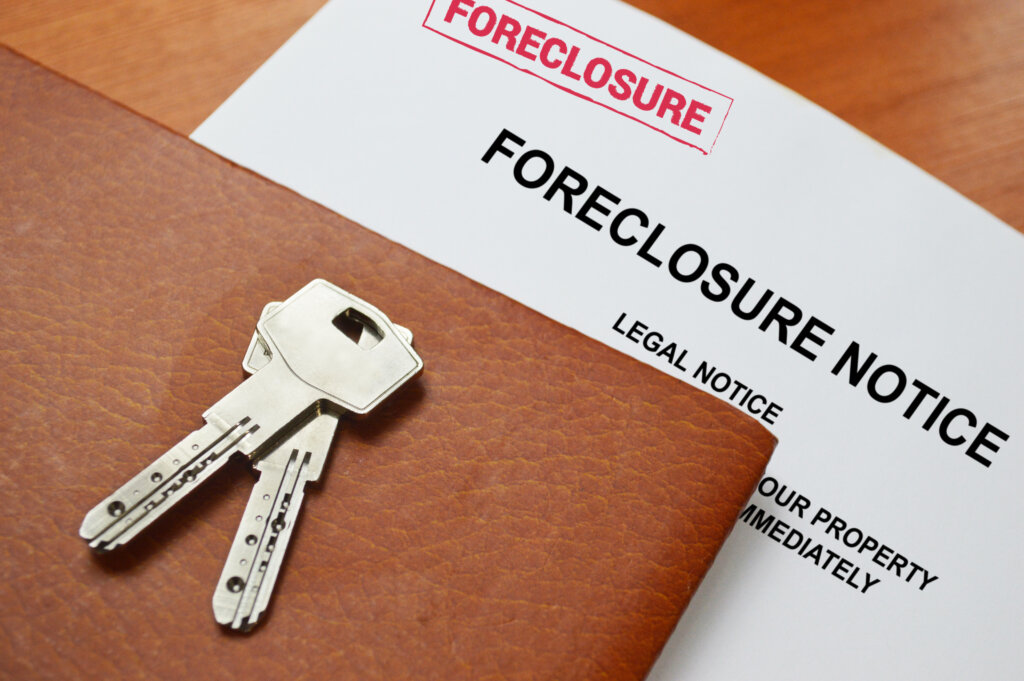Foreclosure: It’s a word that can send a chill down any homeowner’s spine. But don’t worry; it’s not the end of the world. Understanding how the foreclosure process plays out in California is like having an ace up your sleeve – it empowers you to navigate this challenging terrain with confidence.

Before we dive into the details, let’s start with the basics:
Foreclosure is the legal maneuver lenders employ to reclaim property securing a loan when the borrower falls behind on payments. It’s not exactly a thrilling topic, but bear with us. We’ll break it down in a way that’s informative and engaging, without sacrificing the professional tone.
The Foreclosure Adventure Unveiled
Foreclosure doesn’t follow a one-size-fits-all approach across the United States, and California has its unique set of rules. Broadly, there are two main ways states handle foreclosures: judicial sale and power of sale.
In California, the foreclosure journey typically kicks into gear after a borrower has missed payments for around 3-6 months. During this period, your lender will send you notices to let you know that you’ve fallen behind.
Now, let’s dive into the two primary methods used in California’s foreclosure process:
Under Judicial Foreclosure:
- Your mortgage lender initiates legal proceedings.
- You’ll receive a court-issued letter demanding payment.
- If the loan is valid, you have 30 days to settle the outstanding amount in court and potentially avoid foreclosure. This period may sometimes be extended.
- If you don’t pay during this grace period, a court judgment is issued, allowing the lender to request the sale of your property, typically through an auction.
- After the property is sold, the sheriff serves an eviction notice, requiring you to vacate immediately.
Under Power of Sale (or Non-Judicial Foreclosure):
- Your mortgage lender serves you with papers demanding payment, and the courts aren’t necessarily involved, although there may be a judicial review.
- After a waiting period, a deed of trust is drawn up, and control of your property is transferred to a trustee.
- The trustee can then sell your property for the lender at a public auction, with proper notice given to all parties involved.
It’s essential to remember that anyone with an interest in the property must be informed during either type of foreclosure. For example, contractors or banks with liens against a foreclosed property can collect from the auction proceeds.
What Happens After a Foreclosure Auction?
Once the foreclosure process is complete, the proceeds from the property’s sale are used to pay off the outstanding loan amount. However, there can be exceptions. If the auction sale falls short of covering the full loan amount, a deficiency judgment may be issued against the borrower.
A deficiency judgment is when the bank obtains a judgment against you, the borrower, for the remaining funds owed on the loan after the foreclosure sale.
Different states have varying rules regarding deficiency judgments. Some limit the amount owed to the fair value of the property at the time of sale, while others allow the full loan amount to be assessed against the borrower. To navigate this complex process, it’s often wise to explore alternatives to foreclosure auctions.
Instead of heading down the foreclosure path, consider reaching out to your bank or partnering with a reputable real estate firm like Laurel Buys Houses. We can assist you in negotiating discounts to reduce the amount you owe or even eliminate it, especially if your home’s value has dipped below your outstanding balance.
If you’re looking to sell a property in the vicinity of Sacramento, we’re here to lend a helping hand. At Laurel Buys Houses, we specialize in buying houses in Sacramento, CA, and we’re just a phone call or a few clicks away.
Reach out to us anytime at (916) 476-2381 or fill out the contact form on our website to explore your options today! Don’t let foreclosure bring you down – there are alternatives, and we’re here to guide you through them.

